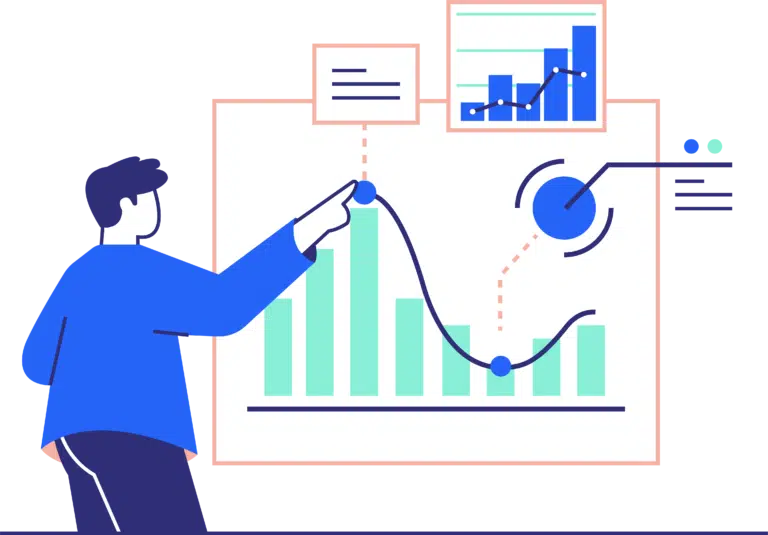In recent years, Ireland has progressed notably in establishing itself as a front-runner in sustainability. This sustainable image is not just a benefit for the environment but also a strategic advantage for companies operating inside the country. As businesses increasingly adopt sustainable practices, grasping the ROI for marketing initiatives becomes vital for maximizing both profitability and brand reputation.
The marketing landscape in Ireland presents unique issues and prospects, especially when it comes to assessing effectiveness. With multiple industries navigating distinct routes and strategies, company leaders need to be well-informed about what constitutes a good marketing ROI in this context. From web marketing to classic avenues, the ways in which Irish companies assess their marketing activities can vary considerably, impacting their overall growth and development. This article will delve into the details of marketing ROI in Ireland, examining key metrics, industry standards, and the evolving strategies that businesses can employ to enhance their sustainable image while ensuring they receive sufficient returns on their marketing investments. ### Understanding Marketing ROI within the Republic of Ireland

Marketing ROI, or Return on Investment, represents a key metric for organizations in Ireland seeking assess the effectiveness of their marketing strategies. It measures the monetary return generated from advertising spending, allowing organizations to make wise decisions about their advertising budgets. Within the Irish marketing landscape, calculating ROI includes examining various factors, including marketing expenses, revenue generated, and the particular goals of every campaign. This insight remains crucial for improving future advertising efforts and ensuring steady growth.
Irish have been increasingly concentrating on how they measure ROI in order to align with global standards while considering local market specificities. They commonly employ tools and analytic frameworks to track the effectiveness of specific campaigns across multiple channels, such as online marketing , social media, and offline advertising. The focus on data-driven marketing has resulted in a deeper understanding of what constitutes a good ROI and how it can vary by sector and marketing type, which makes it vital for companies to benchmark their results against peers.
Additionally, understanding the intricacies of marketing ROI within the Republic of Ireland requires acknowledgment of its geographical differences and trends. Various regions may exhibit diverse consumer behaviors and marketing effectiveness, influencing overall ROI. In addition, as the landscape evolves, companies must keep abreast to new trends and shifts in consumer tastes, which can greatly impact ROI metrics. As marketers in Ireland navigate these changes, the ability to adjust to varying market conditions will be crucial for securing and preserving a strong ROI.
Sector Analysis and Benchmarks
In the evolving landscape of Irish marketing, grasping the standards for return on investment is vital for businesses looking to enhance their promotional effectiveness. Recent studies indicate that the mean ROI for marketing in the region typically falls between three-to-one to five-to-one, depending on the sector and specific strategies used. This span emphasizes the importance of customizing marketing strategies to the distinctive characteristics of every industry, as different markets will yield divergent results based on customer habits and spending patterns.
Additionally, companies in Ireland are increasingly utilizing analytics-based approaches to evaluate their marketing ROI. digital marketing agency as analytics software and customer relationship management systems are being employed to track returns more precisely. These methods enable marketers to scrutinize their campaigns, enhance spending, and make data-driven decisions. As a outcome, businesses that make use of digital marketing tactics often report higher average ROIs compared to conventional marketing approaches, emphasizing the shift toward digital platforms.
As companies in Ireland businesses continue to evolve, it is essential to stay updated on the sector-specific marketing ROI averages and how they compare to broader EU benchmarks. Companies in sectors like technology, e-commerce, and tourism are now seeing notable ROI increase, driven by efficient digital strategies and cutting-edge marketing practices. Comprehending digital marketing services can equip marketers to fine-tune their efforts, cohere with best practices, and ultimately enhance their overall performance in the competitive landscape.
Approaches to Improve Marketing ROI
To enhance marketing ROI in Irish markets, companies should primarily focus on understanding their audience through data-driven analytics. Conducting comprehensive market research enables businesses to categorize their audience effectively, tailoring content that appeal with different customer personas. Utilizing analytics tools to track consumer behavior and preferences can considerably improve targeting accuracy, leading to elevated engagement rates and enhanced conversion outcomes.
Another impactful strategy is enhancing digital marketing channels, particularly social media and SEO. Companies in Irish markets can benefit from improving their online presence by creating engaging content that not only attracts but also keeps customers. Implementing SEO best practices promises that websites place further up in search engine results, driving organic traffic that is more likely to result in conversions. Moreover, experimenting with different content formats and social media campaigns can uncover what works best for the brand, additionally improving marketing efforts over time.
Lastly, assessing and tweaking marketing strategies based on ROI data is crucial for continuous improvement. Creating a robust framework for monitoring the performance of various marketing initiatives supports determine which channels produce the best return. Regularly reviewing these metrics permits Irish businesses to adjust their strategies efficiently, reallocating resources to high-performing areas, and in the end enhancing their overall marketing ROI. Highlighting flexibility and responsiveness to market trends ensures that companies can adjust swiftly to shifting consumer behaviors and preferences.
